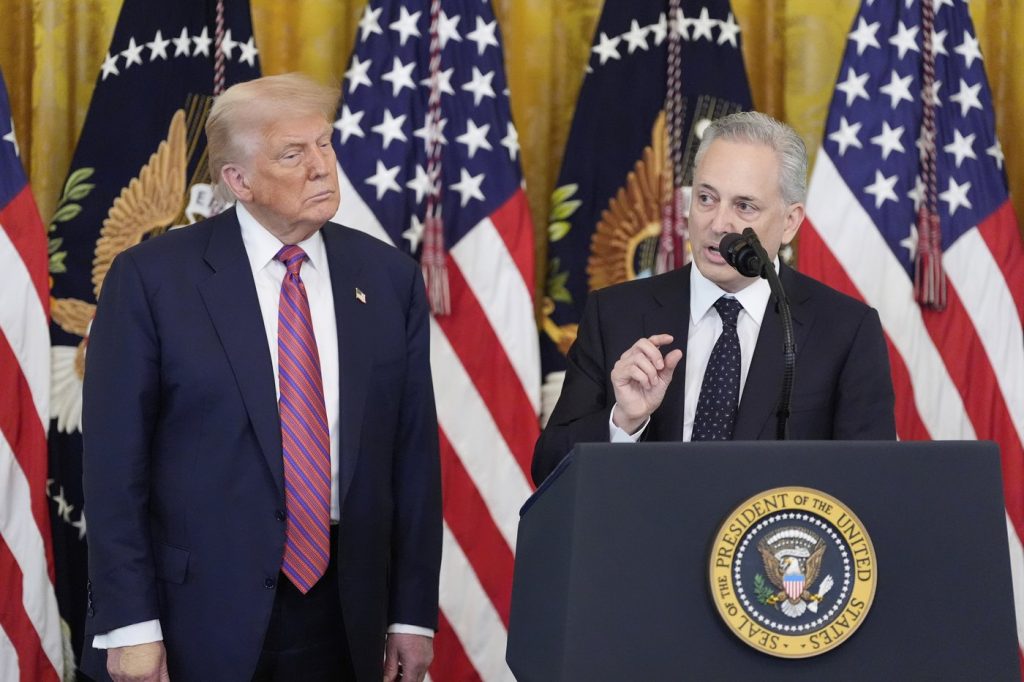An artificial intelligence (AI) agenda that began to shape on various tech podcasts is being transformed into U.S. policy as President Donald Trump engages with ideas from influential billionaires in Silicon Valley who supported his election campaign. On a scheduled announcement day, Trump will unveil an "AI Action Plan". This initiative is a result of his directive to tech advisors for new AI policies, following the revocation of President Joe Biden's AI regulatory measures on his first day in office.
The event is co-hosted by the bipartisan Hill and Valley Forum alongside the All-In Podcast, which features a panel of tech investors and entrepreneurs, including Trump's designated AI advisor, David Sacks. The plan is expected to encompass suggestions promoted by the tech lobby, including the acceleration of AI technology exports and the facilitation of the construction of energy-intensive data centers essential for running AI applications.
One key focus of the plan is countering what is termed "woke AI." This concept has been notably championed by tech advocates in Trump's circle, emphasizing a perceived liberal bias in AI applications like chatbots. Sacks has been at the forefront of this discourse, highlighting instances where AI tools, such as an AI image generator launched by Google in February 2024, allegedly portrayed historical figures in ways he deemed inaccurate due to their programming focused on diversity and inclusion.
In conjunction with this agenda, the Pentagon has announced new contracts worth $200 million with leading AI firms, including Google, for addressing critical national security challenges. Notably, Musk's xAI, which positions itself against "woke AI," is among the selected contractors, despite facing backlash due to controversial remarks made by its Grok chatbot regarding antisemitism.
The administration’s plans will streamline permit processes for AI data centers, which are energy-intensive. Trump's approach links the energy demands of AI with a push to utilize U.S. energy resources including gas, coal, and nuclear energy. Michael Kratsios, director of the White House's Office of Science and Technology Policy, highlighted the necessity of increasing energy supply to support technological advancements.
The tech industry is already advancing on building new data centers, with OpenAI announcing the first phase of a large-scale complex in Abilene, Texas. Other companies like Amazon and Microsoft are also undertaking significant projects. However, this data center boom raises environmental concerns due to the increased electricity demand contributing to fossil fuel production, prompting calls for tech firms to use renewable energy sources for their operations.
The AI export policy under the Trump administration appears aimed at countering the restrictive measures imposed during Biden’s term. While historically, both Republican and Democratic administrations have limited technology exports to adversarial nations for national security reasons, the tech industry criticized Biden's measures for potentially pushing allied countries toward China's rapidly growing AI industry. Recently, California chipmakers Nvidia and AMD reported receiving clearance from the Trump administration to export advanced AI computer chips to China.
Debate among tech venture capitalists regarding AI regulation continues, with varied perspectives emerging in their podcast discussions. Some proponents advocate for rapid advancements with minimal oversight, while others, like Sacks, propose a balanced approach recognizing the inevitability of technological progress. A coalition of 95 organizations, including labor unions and environmental justice advocates, have expressed opposition to Trump's industry-driven AI policies, urging for public-centered regulations instead. They argue that the rhetoric surrounding national competitiveness should not overshadow fundamental protections for the American populace as AI technology continues to evolve.











